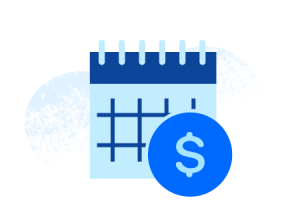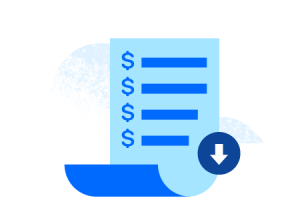
Learn about all the closing costs you'll be required to pay when you sell.

In this article:
Seller closing costs are a combination of taxes, fees, prepayments and services that vary depending on your location. Closing costs can differ due to variations in local tax laws, lender costs, and title and settlement company fees. In some cities, you might pay thousands just to transfer the title of the home to the new owner, while in other areas it’s free. It’s important to understand your regional burden, as well as who usually pays closing costs in the transaction and when they’re due.

Both buyers and sellers pay closing costs, but as a seller, you can expect to pay more.
Buyer closing costs: As a buyer, you can expect to pay 2% to 5% of the purchase price in closing costs, most of which goes to lender-related fees at closing. More on buyer closing costs later.
Seller closing costs: Closing costs for sellers can reach 8% to 10% of the sale price of the home. It's higher than the buyer's closing costs because the seller typically pays both the listing and buyer's agent's commission — around 6% of the sale in total. Fees and taxes for the seller are an additional 2% to 4% of the sale. However, seller closing costs are deducted from the proceeds of the sale of the home at closing, so you rarely need to bring cash to closing.
According to Zillow research, 61% of sellers are first-time sellers, and the closing process can be confusing. Read on for our guide to seller closing costs.
The average closing costs for a seller total roughly 8% to 10% of the sale price of the home, or about $19,000-$24,000, based on the median U.S. home value of $244,000 as of December 2019.
Seller closing costs are made up of several expenses. Here's a quick breakdown of potential costs and fees:
Typically, the seller pays the real estate agent commissions which usually total between 4 and 6%. However, this is not a set amount because the total commission is negotiable between the seller and listing agent.
Out of that total commission amount, the seller also usually pays the buyer’s agent commission (the commission for the agent that is working with the person who ends up buying your home), which is generally 2-3% of the total amount offered.
So, the 4-6% in commission makes up a large portion of your closing costs in any sale.
As noted above, real estate commissions are actually negotiable, and it's something you should bring up when you're first hiring your agent. The agreed-upon percentage should be documented in writing.
What is a transfer tax? Also known as a government transfer tax or title fee, these are the taxes you'll pay when the title for the home passes from you to your buyer at the time of closing.
This tax is charged by the state you live in, and the cost varies a lot by state — one of the reasons it's so hard to find a simple, accurate estimate of closing costs. To illustrate how widely this amount varies, let's take a look at the top 10 real estate markets. (Note: These figures are based on 6% agent commission of the median home value for each area.)
| Metro area | Transfer tax amount, based on median-valued home |
| San Jose, CA | $1,085 |
| San Francisco, CA | $928 |
| Los Angeles, CA | $662 |
| Seattle, WA | $8,654 |
| San Diego, CA | $585 |
| Washington, DC | $4,212 |
| Boston, MA | $1,932 |
| New York, NY | $1,725 |
| Sacramento, CA | $397 |
| Denver, CO | $36 |
Title insurance protects the new owner from issues with your home's title — meaning, if there's someone else who can claim ownership over the property, either because of a dispute over the property or because of outstanding liens from contractors, creditors, or the government.
This one-time payment protects the future owner from the financial burden of sorting out title issues in court, whether they arise at closing or years down the road. It even covers the money they've put into a home if they end up having to release their interest in the property (a worst-case scenario).
It's typical that buyers have sellers cover this cost, which can range between $1,000 and $4,000. Sound like a lot? If you've lived in your house for fewer than 10 years, ask if there's a reissue rate available. Since the policy is covering a shorter period of time that you've owned the home, the policy rate is lower.
One important thing to note: On closing day, you'll probably see two different title insurance line items on your closing documents. One is the owner's title insurance mentioned above. The other is the lender's title insurance. It's a similar policy that protects the new buyer's lender's interest in the property, and it's typically paid by the buyer.
Escrow providers charge either a flat fee (between $500 and $2,000, depending on where you live), or about 1% of the home sale price to manage the closing of the transaction, which includes the signing and recording of the closing documents and the deed, and the holding of all the purchase funds. There are usually some additional charges — think office expenses, fees for transferring funds, the copying of documents, and notary charges.
Escrow fees are usually split 50-50 between seller and buyer.
As you know, when you own a property, you pay property taxes. While the property tax rate can vary widely state to state, all 50 states have some form of property taxes.
Most states accept property tax payments twice a year, and you can either pay them directly or have them paid out of an escrow account associated with your mortgage. When you go to sell your house, you'll be responsible for prorated property taxes due up to the date of the sale, at which point the buyer will take over. Depending on your timing, you may have to pay money at closing to bring yourself up to date.
If you're living in a community that is subject to a homeowner's association (HOA), you likely pay monthly, quarterly, or yearly dues. Just like with property taxes, you'll have to make sure you've paid up to the close date, which can mean forking out some cash at closing. Some HOAs also charge a transfer fee to transfer your property to the new owner.
If you're selling your home in a buyers market (where buyers have their pick of many listings), you may have sweetened the deal by offering your buyer a credit toward closing costs. This is also called a seller assist or seller concession.
The credit you offer them goes to cover some of their closing costs, effectively lowering the amount of cash they need to close on their house. If this was part of your deal-making, expect to see it as a line item on your closing.
In some states, you're actually required by state law to have a real estate attorney present when a home is bought or sold. In the majority of the country it's not required, but people do choose to have an attorney help them with the transaction, especially if dealing with complex transactions, distressed properties, or real estate holdings that have been inherited. If you do hire a lawyer, he or she will often be paid at closing, out of the proceeds from the sale.
Attorneys are required to oversee closing in 21 states and Washington, D.C. These states include Alabama, Connecticut, Delaware, Florida, Georgia, Kansas, Kentucky, Maine, Maryland, Massachusetts, Mississippi, New Hampshire, New Jersey, New York, North Dakota, Pennsylvania, Rhode Island, South Carolina, Vermont, Virginia and West Virginia. In these states, the closing attorney would generally take the place of an escrow company or other settlement agent.

Closing costs are due at closing, when the buyer’s funds are available for payment and disbursement and the closing documents are all signed around. All of the items we’ve covered above will be deducted from your proceeds on the sale, so you won’t need to bring cash to your closing unless your property is underwater — that means you owe more on it than it's worth.
In 2018, the typical U.S. home spent between 65 and 93 days on the market, from listing to closing. The time a home spends on the market varies greatly depending on local market conditions, demand and seasonality. Time tends to be shorter in the spring and summer months when home buying demand is highest, and longer in fall and winter when demand falls off.

While you might want to know how to avoid closing costs completely, it can't really be done. But there are a few ways to reduce closing costs, including:
In addition to closing costs, keep in mind that as a seller, you may end up paying for additional costs, including:

Often, people sell their home because they're buying a new home. If you're buying another home soon, you're not out from under closing costs just yet. Buyers have their own set of closing costs when buying a new home, and they typically include: